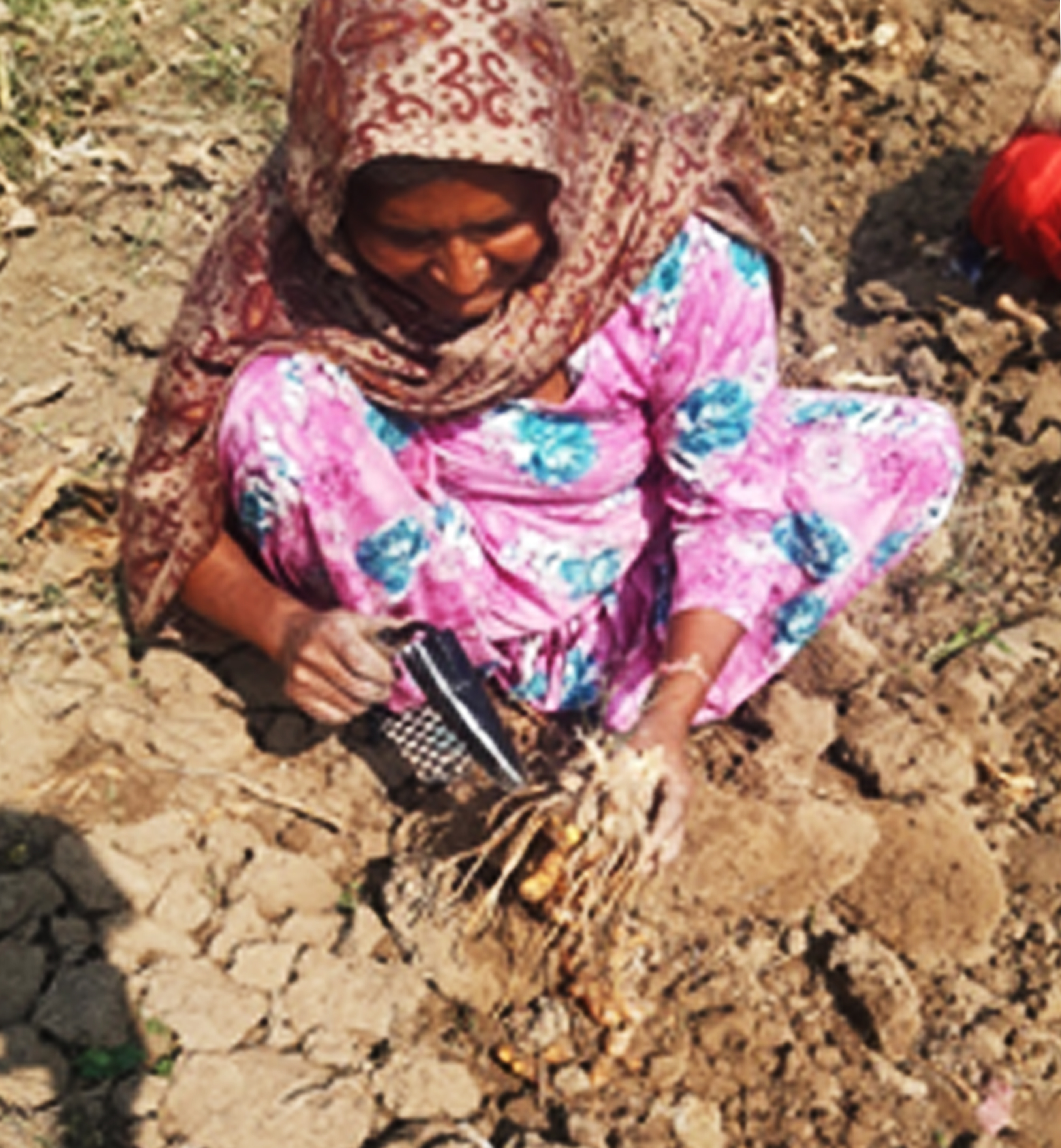Ergonomic tools empower rural women, help unlock new doors
Women across the district’s villages, including Sudhar, Boparai Kalan, Purain, Jandiali, Raqba and Guram, are embracing a quiet transformation, not only through grand ceremonies, but also through the simple act of using a khurpa that doesn’t hurt the wrist, or a tarpaulin that saves grain from mud. Equipped with improved agricultural and household tools, these women are not just working smarter they’re reclaiming control over their time, health and ambitions.
Under the All India Coordinated Researc
 A woman uses the tools in her field work.
A woman uses the tools in her field work.
h Project on Women in Agriculture (AICRP-WIA), distribution programmes have been held across these adopted villages to ease physical labour and promote sustainable, income-generating practices. Organised by departments within Punjab Agricultural University (PAU), the events drew enthusiastic participation from over 75 women, each receiving tools that ease back-breaking tasks they once did manually.
The distributed kits included ergonomic khurpas, steel buckets, plastic crates for produce, garden pipes, sickles, tarpaulin sheets and paddy weeders—all aimed at reducing drudgery in farming and household work. “I used to bend for hours while weeding rice fields, and it would leave my back sore for days,” said Baljinder Kaur from Boparai Kalan, adding that “But with the mandwa weeder, it takes less time and doesn’t hurt. It feels good to see someone thought of us.”
Echoing the value of such efforts, Dr Harpreet Kaur, Head of the Department of Food and Nutrition at PAU, said, “Ergonomically designed tools lessen physical strain and promote productivity. Women deserve both dignity and efficiency in their work.” The initiative is about more than convenience it’s about opening doors. “These tools aren’t just practical they are liberating,” said Dr Shivani Rana, scientist in the Department of Resource Management and Consumer Science, who led the Boparai Kalan programme. “Once women save time and effort, they’re empowered to explore entrepreneurial activities and improve the quality of their produce,” said Rana.
In Guram and Kulewal villages, the focus leaned toward entrepreneurship. Dr Prerna Kapila from PAU’s Department of Apparel and Textile Science emphasised, “When women learn to use labour-saving techniques and see their potential for small-scale businesses, it changes the way they value their work. These tools can spark local enterprise and better income generation.”
Women participants expressed appreciation not just for the resources, but for the recognition. “We’ve always worked hard. Now our work feels seen,” said Manjit Kaur from Guram. The programmes were supported by dedicated field staff, including Gurpreet Singh, multi-tasking assistant and young professionals Dr Aditi Sewak and Dr Shikha. Local sarpanches such as Jagmohan Singh Deol and Jaswant Singh also endorsed the efforts, attending events and encouraging women to use these tools regularly.
These PAU-led interventions under AICRP-WIA are redefining rural livelihoods by reducing drudgery, protecting health and giving women the confidence to imagine new possibilities in farming and enterprise. What began as a tool distribution exercise is shaping up as a quiet revolution—one khurpa, one crate, one empowered woman at a time.
wuw
Ludhiana